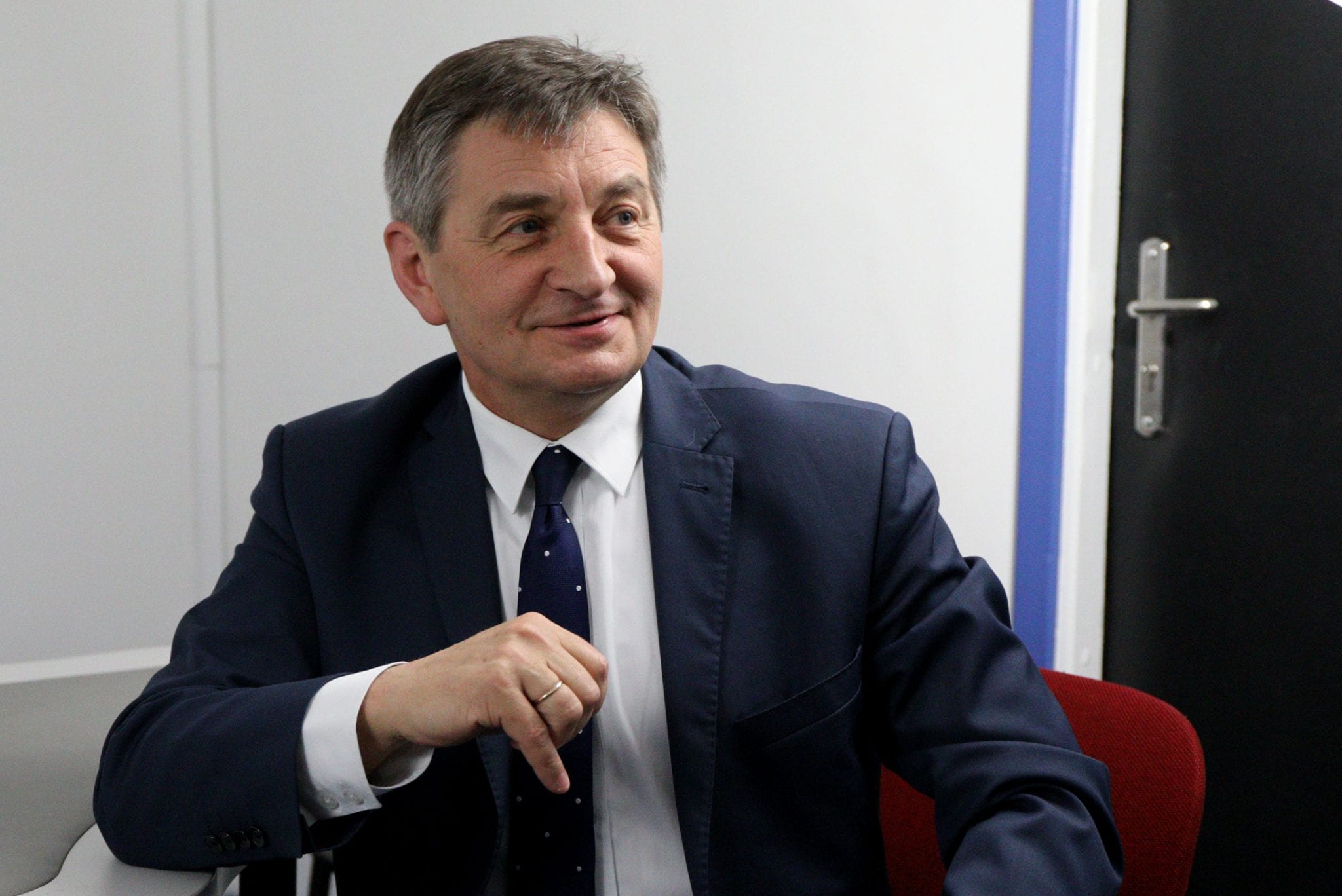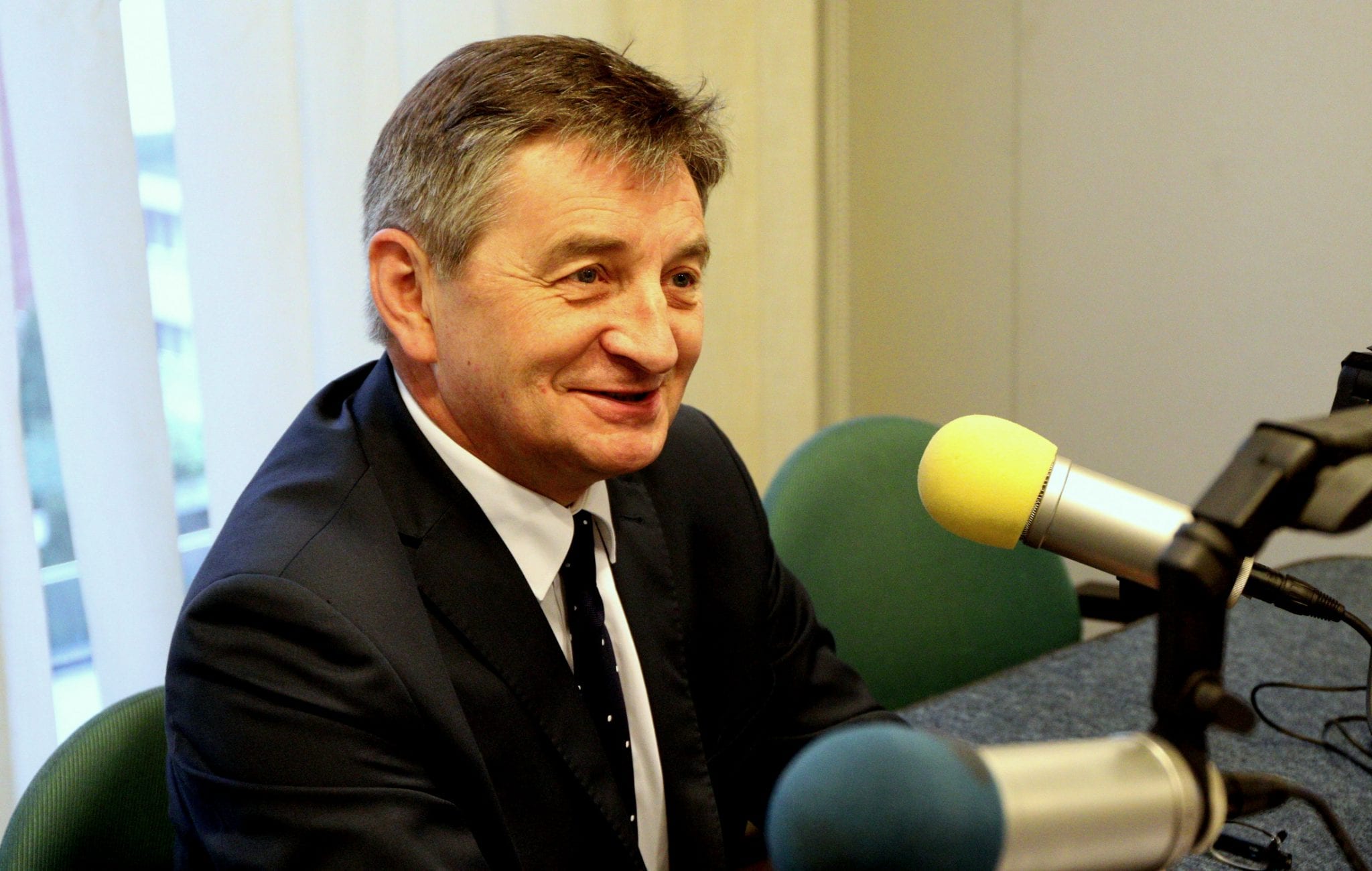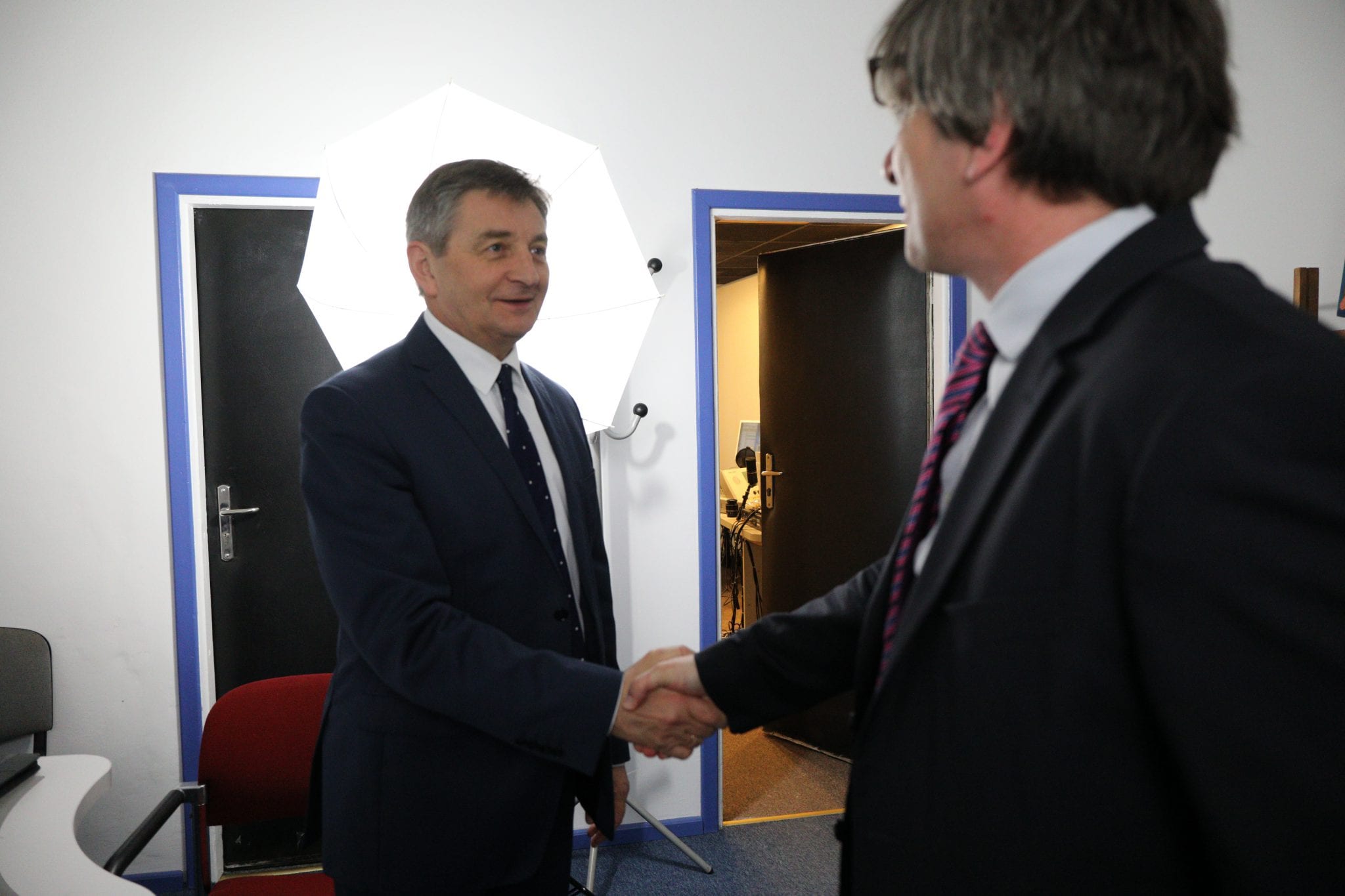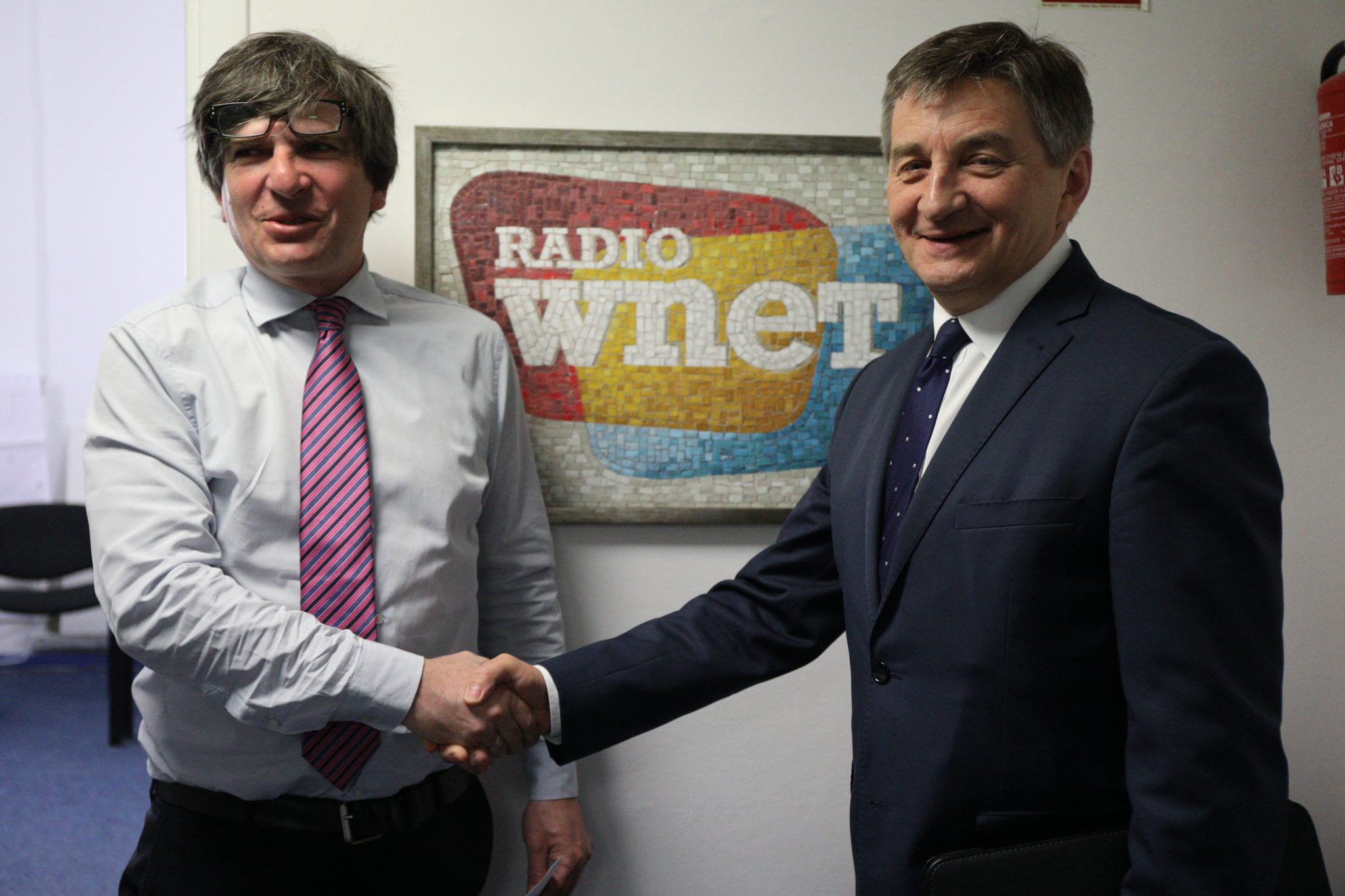KS: French presidential candidate, favorite Emmanuel Macron said that unacceptable things are happening in Poland and promised that if he wins the election, he will bring sanctions against Poland... and he will do it in three months.
MK: One can express strong indignation, but I would go further. What surprises me is the cavalier attitude of the presidential candidate of one of the most important EU countries towards another EU country - Poland - in the second round and the ignorance of the matter resulting from this statement. I get the impression that Mr Macron said it because he wanted to lose the election. Not only is he introducing conflict areas into Polish-French relations, but he is also showing great ignorance by saying that Poland is breaking the rules. According to many who are dissatisfied with the functioning of the European Union, it is the EU that abuses its rights by interfering in the internal affairs of states, and Mr. Macron should pay attention to this.
The context is important, because Macron said this in a French factory to be relocated to Lodz. And the fundamental right of the EU is freedom for people's capital, an announcement that breaks the real foundations of the EU.
It is a statement for the purposes of an election campaign, disingenuous, misinforming, and that is its weakness, and besides, I wonder what the French and the owners associated with companies such as Leclerc, Decathlon, Auchan and other French companies will do. In Poland, a few thousand of these institutions work as service establishments. If things were to be as Mr. Macron says, these companies would have to pull out of Poland. And does he want that?
There are many such companies in Poland. It is surprising that the Polish theme did not appear in the campaign, and suddenly it appeared so strongly... It seems strange
I can recall a case which took place a few years ago, under the government of our predecessors, when the Polish authorities were not making effective efforts to protect the shipbuilding industry. At the time, Germany and France were trying to protect their shipyards, and they were failing in Poland. The French had no qualms about using the law and regulations for the interests of their own firms as an EU member... This is not the best form of cooperation.
If Macron becomes president of France, is he likely to follow through on his announcements and introduce sanctions against Poland within three months?
There are definitely no such chances, no such possibilities. There would have to be great debates, decisions of all EU authorities including the unanimity of the heads of state of the whole EU. It is a pipe dream and a form of such taunts for the use of the electoral campaign, and to win over a group of several dozen or several hundred employees of the factory announced to be liquidated or transferred to Poland.
Mr. Speaker, you conduct very intense international politics on behalf of the Polish parliament. Did you feel ostracism towards Poland in Bratislava, where the heads of the EU parliaments met? Hungary? The Visegrad Group?
I did not get such an impression. On the contrary, the search for compromise and proposals to deepen cooperation was declared on all sides. From the largest countries, such as Germany, Italy or France, to the weaker ones, which need support the most and which have recently become EU members. We differ in our approach and choice of the way to repair the EU. However, nobody spoke about weakening the Union. There are supporters of creating a so-called two-speed or multi-speed Union, and we do not belong to them, we believe that this could weaken the Union, but there were discussions on how to strengthen the Union, how to strengthen cooperation, without imposing our own opinions.
Is there an idea that can be considered the most popular?
Most parliamentary presidents were in favor of maintaining the EU's cooperation as a large international organization of sovereign states, including multinational states such as Bosnia and Herzegovina, which is seeking to join the EU. There were discussions on how to arrange relations. You could see the pressure of the biggest countries on the much smaller ones. My task was to care and draw attention to the fact that in the EU we should act to strengthen the importance and role of national parliaments. The European Commission and the European Parliament make decisions, which Poland then has to adopt. There are many legal acts concerning, for example, delegated employees or energy issues, which are harmful for the Polish state and Polish entrepreneurs, on which the Polish parliament has no influence. If we take into account the provisions of the Constitution and other laws, the parliament represents the nation and should have more say and more time to think about and analyze these acts which come from Brussels or Strasbourg.
These larger countries are the ones that came together a few weeks ago at Versailles, that is France, Germany, Spain, Italy... Did they put pressure or say that the national parliaments cannot have more power, more say?
They didn't so much refer directly to national parliaments as they talked about continuing on the road to federalizing Europe, trying to justify that this is also strengthening the EU in global terms, which is obviously not true. Britain is leaving the Union, which means that in global terms the Union will lose 1/7, 1/8 or 1/10 of its strength, it will be a weaker partner to the United States or China. I judge their statements in the interest of their own countries and in the context of elections - now in France, in the autumn in Germany, and everybody is afraid of situations like the anti-European radical movement, or in Austria.
Unfortunately, after the statement of the favorite, Mr. Macron, the future of Europe looks in black colors, because if he wants to implement what he promised, Europe can be closed to some area from which Poland can be excluded.
On the part of Polish diplomacy, on the part of the Polish government, I would expect fairly clear and firm comments. However, I would not treat these words very seriously, because they are words spoken during the election campaign, so we would wait to see what President Macron will do if he becomes president, and this is not so obvious.
Polish diplomacy talks about increasing the powers of nation states. Are we sure that anyone supports such a concept?
A year ago in Luxembourg, during a similar meeting, I presented the idea of solidary, sovereign states, to use the language of John Paul II: the Europe of Fatherlands. We have begun a discussion and we can see that many Member States, including representatives of the French Senate, for example, are in favour of strengthening the role of national parliaments by introducing the right of veto in the case of bad EU projects which are not to the liking of a group of Member States, by the possibility of proposing our own projects, or by lengthening the process through precise description of the competences of EU institutions and effective application of the principle of subsidiarity... Strengthening national states is a view shared by many Speakers of Parliament. It is just a matter of agreeing on a plan to get there.
Aren't we afraid that one day it will be 27 to 1 when the future of the EU is decided?
27 to 1 was a personnel election, zero-one. A decision either for or against, with no opportunity to discuss the Constitution, for example. It is incomparable. Besides, I do not see it as Poland's great loss. On the contrary, in my opinion Poland, also in interparliamentary relations, is noticeable also by those who have not paid attention to us so far... Maybe we were a bit late in promoting a different personnel solution, but generally speaking, nowhere is it said that Poland has to vote for any candidate.
Poland and Hungary are in the sights of European commissioners and politicians. The Speaker signed a strategic partnership between the parliaments of ...
It concerns strengthening cooperation between our parliaments. Until now, several years ago, there was no awareness in Europe of the great role and significance of parliamentary diplomacy. Several years ago, when I was Speaker of the Sejm, I was even asked to raise the standard of Central Europe in Poland. We were aware that strengthening cooperation, not at the expense of others, but within the framework of, for example, V4. We started with Hungary, but I hope this is not the only one.
Left-wing Europe was appalled by Prime Minister Orban's decision to close a university funded by Soros foundations. What do you make of this?
I would not like to comment on this, these are Hungarian issues, but I am not particularly surprised by such decisions of the authorities.
At the invitation of the Marshal, in May presidents of parliaments come to Warsaw. Which politicians?
We invited the Speakers of the Parliaments of all the countries of Central, Central-Eastern, Northern and Southern Europe, that is from Scandinavia to the Caucasus countries, Kazakhstan to the Adriatic Sea, the Mediterranean Sea, including Turkey. We invited the presidents of the parliaments of these countries, being aware that these are different countries: Albania, Armenia, Azerbaijan... Everywhere there are various disputes or conflicts, for example Nagorno-Karabakh. However, we think that living in this part of Europe, between Berlin and Russia, we must meet from time to time, if only to exchange information, especially with those countries which are outside the European Union, and there are three such countries. By its very nature, we do not invite Russia, but we must think in terms of security and also in terms of seeking agreement with our neighbors in the East and beyond. The Georgians, for example, want very much to cooperate, there is the Eastern Partnership, which is an unused instrument, and then there is the question of the security of the whole of Europe and, in particular, of our region - Eastern Europe. We cannot allow Russian policy to be conducted by re-absorbing countries which regained their independence 20 or so years ago. The best example of this is the war in Ukraine.
So this summit will not be about the European Union, but about a large region? A piece of the world will be in Warsaw...
Yes, we invited 31 states. Some states have two chambers, so it will be a large group. There is not only a division here between Christianity and Islam, Protestantism, Orthodoxy... everyone lives in organized states and wants to live with normal neighbors, not building walls. We tore down those walls twenty-some years ago, solidarity helped us to do that. Should we rebuild them? I think not.
Whether these walls will not be rebuilt by the EU core countries remains to be seen, returning to the thread of the Versailles agreement of a two-speed Europe...
I am optimistic in this respect. It is hard for me to imagine that the Germans, the Italians or the French would want to close down, because the German economy, for example, depends on the cooperation with the countries of Central Europe. The fact that a considerable part of the Polish economy is connected with the German economy in more than 50 percent, similarly to the Visegrad Group, Baltic states, etc., means that politicians should look for a solution that would benefit all the countries, not just one, and this is our goal.
The Marshal is from Przemyśl, where Polish-Ukrainian relations are very close. Kiev is holding back legalization of Polish memorials in Ukraine. The IPN has announced that it will initiate the suspension of issuing permits for the search of burials and cleaning of Polish memorial sites in Ukraine. And this is the reaction to the removal of the UPA monument in Poland....
Certainly the Polish state institutions responsible for these issues should react very clearly and, first of all, explain the credibility of this type of information, and if the Ukrainian counterpart of the Polish Institute of National Remembrance (IPN) really started such activities, then Polish diplomacy and the state authorities, including the Polish Institute of National Remembrance, must react. This is a certain history which indicates that the state authorities, speaking from the Polish perspective, should be vigilant. Illegal monuments of this type cannot be erected, and local authorities must take care not to turn a blind eye if some illegal monuments are erected, especially in sensitive places, because this leads to situations such as the one we have at present.
Interstate cooperation must be based on truth and clarification of historical, even the most difficult situations.
The genocide committed by the formations of the Ukrainian Insurgent Army against Polish citizens of various nationalities: Polish, Ukrainian, Jewish and others, during the Second Polish Republic, must be evaluated and explained, just as it cannot be forgotten and must be explained in the civilized world. We cannot forget it and pass it by.
Ukrainians refuse to accept the truth about Volhynia, Ukrainian politicians respond: we have a sin, but you also have a sin...
This matter needs to be clarified, but there are so many facts and proofs that this matter must be clarified, although it must not obscure other forms, areas of cooperation and the situation related to the security of Europe, Poland, Ukraine and other countries in this part of the world in the face of the aggression that we currently face from our eastern neighbor.
And isn't there an asymmetry in Polish-Ukrainian relations? Polish politicians present and present at Majdanek, supporting Ukraine's aspirations for visa abolition and various facilitations, speaking out loudly about the conflict, wanting sanctions for Russia, and at the same time over a million Ukrainian citizens in Poland, and somewhere there is an imbalance in Polish-Ukrainian relations...
There must be a balance in this area. At the moment there are almost 2 million Ukrainians who have Polish roots, from their great-grandparents, even more, and we should consider that they should be given Polish citizenship, or at least the Polish Charter. This is a very complicated situation. I see here a search for cooperation where it is expected, where it is desirable, where it is good from the Polish point of view for the Polish citizen living near the Ukrainian border, but also from the point of view of the interest of the whole country, in order to secure the basic issues - the sense of security and the fact that there is a predictable country behind our eastern border, which does not arm itself against Poland.
Let's look at what is happening in Poland. Prime Minister Beata Szydło called a special meeting, invited all the ministers, deputy ministers to say that among them there are a few who think more about their political career and not about the community... The door for those who want to play individually, the door is open. This was a reaction to the words of the Minister of Digitalisation. Is there a solstice in the government?
I have not heard of such situations, disagreements or differences of opinion occur in every government. I can say that the current government is the most stable government compared to the previous ones. Let me remind you, the second year of this government is coming to an end. I think the Prime Minister did the right thing by putting things this way, because there should not be articulated differences of opinion outside. If someone is in the government, in the team, we play to one goal, and you cannot be an individual and make circles... Well, unless someone is Gadocha....
So there is no topic of government reconstruction on the agenda of PiS politicians in the salons of power?
I have not encountered this. As the Speaker of the Sejm, I make sure that the work is done in accordance with the current legislation.
Will opposition MPs be punished?
Some MPs received financial penalties, but not in connection with December 16, but with violations of the rules throughout 2016. I would like to remind you that such penalties are decided by the Sejm Presidium and there must be a majority, the Speaker does not have such powers on his own. We know what the majority is at the moment and that the Speaker of the Sejm in this configuration... We are looking for a way out to strengthen the rules of procedure of the Sejm, to increase security and to mobilize MPs more to behave according to the accepted norms that will have to be written
How soon will the reform of the judiciary in Poland take place?
It depends on the work of individual parliamentary committees. The Justice and Human Rights Committee is currently working on two bills - on the National Council for the Judiciary and the Judiciary School. I don't know whether this committee will manage to prepare a report for the next session of the Parliament in two weeks' time, but we are patiently waiting. I think that a thorough analysis of these projects, a reflection on it, in my opinion good, resolving a number of provisions that have maintained various forms of pathologization of life, detachment from reality, are good, but this is already the decision of the MPs.
The poll race continues. One center surveyed the mood of the Poles and found that PiS has lost the lead to PO.
Every month there are about a dozen or so telephone polls... The more reliable ones are the pollsters, and there are three of them, conducted directly with citizens, which show that PiS has the support of 45 percent of Polish citizens, those determined to go to the polls, and that to me is the authoritative poll.
Will you be calling press conferences before Sejm sessions?
If there is such a widespread expectation, then yes, but I don't think that the Speaker of the Sejm is responsible for calling press conferences. There is the press office of the Chancellery of the Sejm, with a very good director and a good team... The role of the Speaker of the Sejm is to represent the Sejm outside, yes, but not necessarily through press conferences. But if there is such an expectation - please feel free, I am at your disposal.






